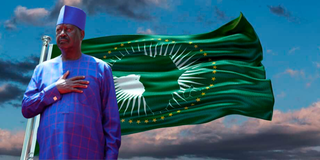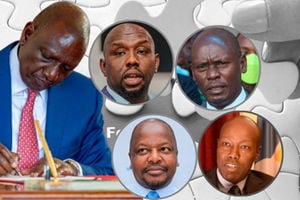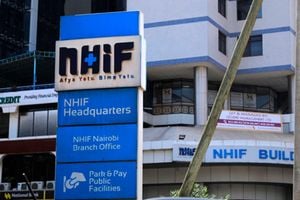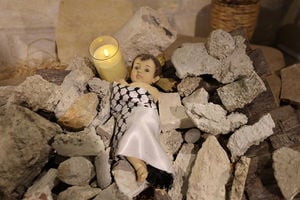
Raila Odinga’s candidacy for the AUC chairmanship could redefine his legacy.
On December 13, Raila Odinga, Kenya’s candidate for Chairperson of the African Union Commission (AUC), reached a crescendo. On what is now a historic day in Addis Ababa, Ethiopia, Mr Odinga took to the stage in the AU’s Multi-Purpose Hall where I think he pulverised his two esteemed challengers for the AU’s top executive office.
Standing between Djibouti’s Mahmoud Ali Youssouf and Madagascar’s Richard Randriamandrato, Mr Odinga proved to Africa why he is the best man for the job, and why if elected, he will be ready on Day One to serve Africa. His stature, mastery of Africa’s key challenges and opportunities, stood out.
The road to the pinnacle of the AUC has three milestones. The first is the declaration of candidacy and the filing of the application with, which Mr Odinga did earlier this year. The second, and arguably the most important early test, is the Mjadala, or debate. While a candidate can’t win the seat at the Mjadala, they can certainly lose it thereby fumbling the debate. Mr Odinga passed that test with flying colours. The third and last milestone is the voting for the Chairperson by African heads of state in February 2025. That vote is the most pivotal and terminal event of the process. You go home if you lose the vote.
It’s impossible to overstate the importance of the AUC seat for Mr Odinga and Kenya. For decades, Mr Odinga has strode Kenya’s political landscape like a colossus. He’s been the centre of gravity of the country’s politics. His ascent to the top of Kenya’s politics started after the death of his father, the doyen of Kenya’s opposition, Jaramogi Oginga Odinga.
Political tension
Mr Odinga has been the glue that held Kenya together in times of political tension since the rein of President Daniel arap Moi. He’s stabilised the country after heated political competition against Mr Daniel Moi and Presidents Mwai Kibaki, Uhuru Kenyatta, and William Ruto. The quintessential statesman, he’s known how to compete but also close ranks with his opponents for the sake of country.
Mr Odinga is Kenya’s most senior living democrat. He’s the father of the 2010 Constitution for which he fought for decades, and personally paid a heavy price for it. His history of struggle for the rule of law and accountable institutions is etched in stone in Kenya. There can be no doubt he’s contributed to creating more political space for liberties and freedoms to flourish and engender a society of empathy, not antipathy. He’s mentored countless politicians from all walks of life, including women, the youth, and Kenyans of every region, ethnicity, and race. He’s one of the very few politicians at the top who proudly first and foremost wears the title of ‘Kenyan’ in a country where narrow ethnic politics dominates.
The post of the AUC requires a Pan-Africanist. A person who’s a true champion of Africa, not a small-minded ethnic leader. That’s why Mr Odinga’s truly national outlook in Kenya is an essential early qualification for the job. How can one be a Pan-Africanist, if they aren’t a nationalist at home? On the Mjadala stage in Addis Ababa, Mr Odinga showcased his Pan-Africanist credentials to the world.
Deadly conflicts
He knows every blade of grass on the continent, and is on a first-name basis with African heads of state. He has mediated deadly conflicts in Africa. He’s served as head of the AU’s Infrastructure docket. His command of what ails Africa and how to harness its potential were in full display.
Mr Odinga’s fortunes at the AUC are intertwined with those of Kenya. No Kenyan has held such a lofty position internationally. Mr Odinga’s success in February will be a great victory for Kenya. Why? First of all, it will raise Kenya’s profile in Africa and internationally. Kenya is already admired by Africans across the continent because of its open society, hardworking people, and enviable investment and tourist destinations. Mr Odinga’s triumph can only increase by multiple factors this rich profile. Kenya’s bigger fortunes are Africa’s win. He will be able to speak with stature and authority at global forums such as G7 and G20. His call for two UN Security Council veto-power seats for Africa is timely.
Kenya hasn’t been a laggard when it comes to pulling its weight on the continent and across the world. Kenya has for long been a leader in peace-keeping and peace-building operations on the continent. Today, it’s leading a multinational force in Haiti. Mr Odinga’s election will cement the country’s reputation in peace operations and as an example of how Africa can foster local solutions to the continent’s problems without always looking outside.
Safeguarding Africa’s sovereignty is a task that will require a leader who can forge unity for inter-Africa trade and connectivity and to confront climate injustice, terrorism, political instability, and divisionism. Mr Odinga is that leader.
Makau Mutua is a key strategist for Mr Odinga’s AUC campaign. He is SUNY Distinguished Professor and Margaret W. Wong Professor at Buffalo Law School, The State University of New York. On X: @makaumutua.










